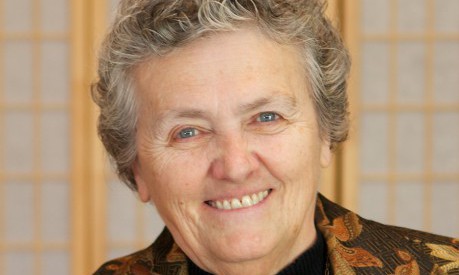The power of the 24-hour news cycle is that sometimes we hear a story so often that we stop hearing it at all.
Unless it comes leaping off the screen at us. Unless it breaks through the headlines for some reason, appears again after its few seconds on Twitter and comes alive outside itself. In us.
I have just had that experience.
Out of nowhere, a story that had become dimmed appeared in front of me: I got a letter from a Yazidi woman.
I had met Ummaya in a women’s interfaith peace program in New York City in 2003. The Global Peace Initiative of Women brought Iraqi women to the United States to meet with American women from across the country.
The hope was, of course, that we would make personal connections between us that would advance interfaith understanding and build bridges between two countries locked in a senseless war.
More than that: Women, we thought, might be able to reach across the ethnic boundaries there, too, soften the anger, and forge new bonds in a country seriously divided and dangerously entrenched.
Now, 12 totally silent years later, I was holding a letter to us from one of the women in that first meeting whose face I could barely remember but whose voice came through loud and clear.
It made real that day so many years ago in New York. It read in basic and sometimes inverted English and took careful interpretation. She wrote:
Cases of rape and marry the wrong person … has been our girl’s destiny when Daash [ISIS] has taken them prisoners. Today 300 of them returned after the girls fled from air strikes … Tragic stories of these women that are suffering psychological and neurological damage. Is it possible to address this situation in America or send medical aid to them? …
We want your help and we want solidarity on International Women’s Day. Continue reading
- Sr Joan Chittister in National Catholic Reporter
Benedictine Sr. Joan Chittister is a frequent NCR contributor.
